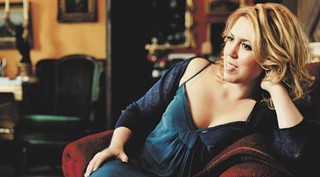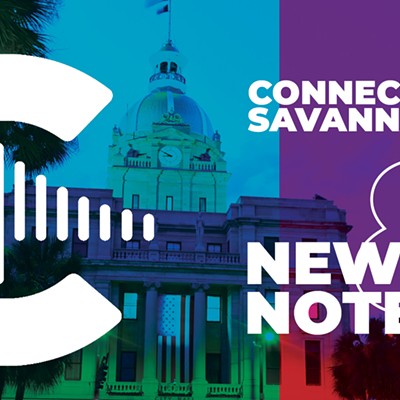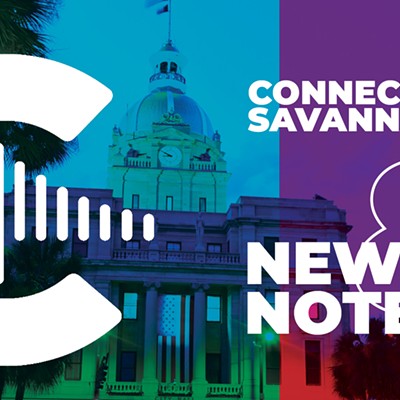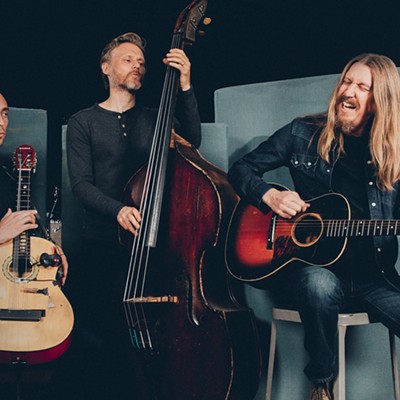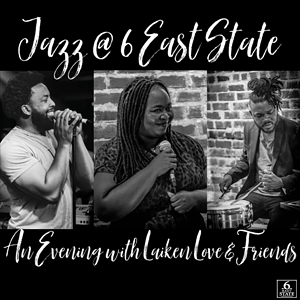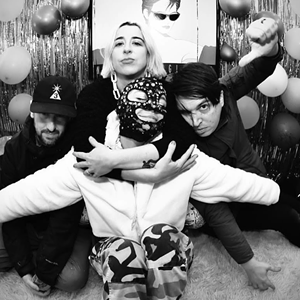There is, of course, a certain fearlessness necessary when one chooses a life on the stage. In a sense, musicians are opening themselves up for all to see, saying “Here I am. What do you think of this thing I do?”
Gabriela Montero is one of today’s most accomplished classical pianists — she has performed with symphonies around the world, in recitals at the most prestigious halls, and in collaborations with many of the cornerstone players in the field.
Yet Montero, who’ll play twice this week as part of the Savannah Music Festival, is more fearless than them all. She is known for her improvisational work – asking the audience for a melody of their choice, she’ll then absorb it and improvise around it in the style of, say, Chopin or Mozart.
It’s no mere parlor trick. The New York Times calls Montero’s improvisation “Brilliant, wonderfully imaginative,” and even TV’s famously stodgy 60 Minutes was charmed by her prodigious talents. And anyway, as Montero says in this interview, improvisation was a standard part of the masters’ repertoires.
Venezuela–born, the 39–year–old Montero lives in Boston with her two young children. She says she’s looking forward to visiting Savannah (“I’ve heard it’s enchanting”) and performing with her longtime recital partner, cellist Gautier Capucon, and as part of the Sensations chamber music series alongside her old friend Daniel Hope.
One half of her March 24 recital (alongside Capucon) will consist of standard classical repertoire, the other all improvisation, with involvement from the audience.
Since classical music is so repertory based, I would think that improvising is considered rather unusual, if not frowned upon by a lot of people. Am I wrong?
Gabriela Montero: You’re right that nowadays it’s something that, let’s say, you would think that it really doesn’t belong to the classical music, but more to the jazz. But in fact the great composers or the great pianists of the past, a lot of them improvised. Starting with Bach, with Handel, with Mozart, Chopin. Beethoven was a noted improviser. So there’s a huge tradition in improvising in the classical world.
Unfortunately, it’s very, very few classical musicians who improvise – there’s maybe less than a dozen in the world who improvise onstage.
In my case, I’ve improvised all my life. Since I was a child, it was just my very instinctive, natural language with the piano, and it’s something I always did. However, for 10 years – from the ages of 8 to 18 – I was with a teacher in the States who dissuaded me from doing it. Because she thought it was the wrong thing to do – and it was worthless, basically. It turns out she was wrong.
What changed?
Gabriela Montero: Even in my 20s I rarely improvised in public. And I felt kind of disconnected from a very essential part of myself, and of my musical self. It was really at the age of 31 when (Argentinean piano great) Martha Argerich heard me play and improvise, and she became my greatest motivator and supporter in that way. She said to me “Gabriela, this is so special, why aren’t you doing it onstage?”
She really changed my life in that way, because I was able to fully be myself, musically.
Obviously, improvising in an orchestral setting isn’t the thing to do, but in a recital, when you’re by yourself playing something that’s written down, do you feel free to ... I don’t know, wing it?
Gabriela Montero: No, no, it’s two completely separate worlds. The only times I would improvise in a written piece would be a cadenza in a concerto. And I’ve done it many times with Beethoven and Mozart concerti.
My recitals are first half traditional classical repertoire, whatever, and then the second half is completely free. And that’s when I include the audience and do what I do with the improvisation. But I am a classical artist, and I just happen to also live in that other world, of improvising in classical style.
OK, so if someone calls out “Give us ‘Hey Jude’ like Mozart,” are you good to go? Do you know pop music that well? Or do you have them sing you the melody?
Gabriela Montero: There’s many, many melodies that I know, but there are many that I don’t, you know? Let’s say when I’ve been to Turkey, or Austria or Germany, there’s many local folk songs, or music that is important to them, that I wouldn’t know.
So the reason for me asking the audience to “sing the scene,” it really began when I did sit down and say “I’d like to improvise for you.” It’s such an anomaly in the classical world that people didn’t really understand what I was doing.
By them giving me the scene, they became involved in the process. They saw how the scene bounced around and was transformed in improvisation, sometimes in many different styles.
I’ve had so many concerts where the whole public — three, four, five thousand people — will sing to me, together in unison! And it’s an incredible experience. It’s so, so beautiful to see that happening.
You’re often described – and I’ve heard you describe yourself this way – as an emotional player. What does that mean to you?
Gabriela Montero: I was born entirely musical, everything I hear, I feel, I experience. My head is 24 hours music, improvising music or practicing pieces I’m going to play ... it’s just something I cannot help.
I’ve never been one to collect recordings, or to obsess over music in general. My emotionality to music is linked where it’s almost like a diary of my life as a human being. On the piano. As a language.
Music is a language for me to express humanity. And what links all of us, and what we all experience. When I take a musical score I like to explore it, I like to discover it, but I also like to go very deep into what I feel was the emotional basis for it. Where that work came from.
Some artists see music in a very architectural way, for some people it’s very much about musical anecdotes or musical ideas. For me, it’s about an emotional world, more than anything.
I think it really, really connects me to the people who are listening, and vice versa. It’s a two–way street when you’re sitting there on a stage, giving so much, and being so brutally honest about who you are. And that’s probably what keeps me there, that honesty and that truthfulness that I like to experience as an artist with my audience.
Would you say that you share that with Gautier?
Gabriela Montero: Yes, Gautier is an incredibly emotional player. And when we play together, not only are we very best friends but it’s incredible what happens. We just inspire each other and make each other go higher than we usually do. We really get into a space that is very, very intimate and very emotional.
Gabriela Montero, piano
In recital with Gautier Capucon, cello
When & where: 6:15 p.m. Wednesday, March 24, Telfair Academy, 121 Barnard St.
Tickets: $47
Sensations 2 with Gautier Capucon, Daniel Hope, Benny Kim, CarlaMaria Rodrigues, Eric Kim and others
When & where: 6:15 p.m. Thu., March 25, Telfair Academy, 121 Barnard St.
Tickets: $47
Info: savannahmusicfestival.org

